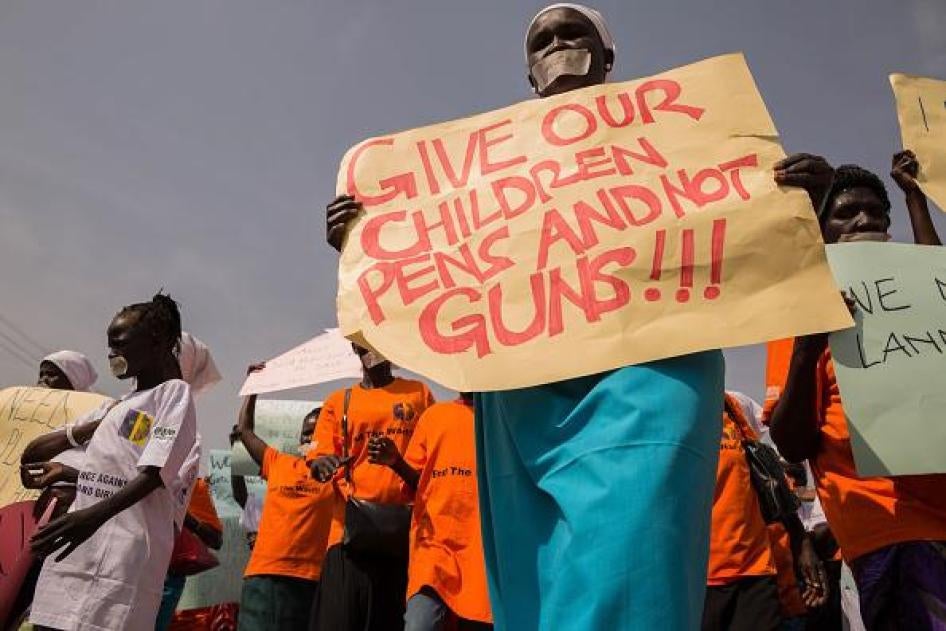Bonifacio told Human Rights Watch that he was 16 years old when South Sudanese soldiers snatched him away from his family in 2016 to fight a war grownups begun when he was only 13. During his training, he was beaten and whipped and shot at. Later, soldiers forced him to go and kidnap other youths. Bonifacio escaped from the armed forces last year and made his way to a UN protection camp. He now goes to school and wants those who stole his youth away from him punished.
In that spirit, we urge the Human Rights Council to renew the mandate of the UN Commission on Human Rights in South Sudan and ensure it has sufficient resources to continue its indispensable work to collect and preserve evidence of serious violations of human rights and identify those who may be responsible. This mandate is all the more important given continued abuses against civilians, the lack of progress on accountability, and the importance of laying the groundwork for future prosecutions in the absence of existing judicial efforts to bring perpetrators to justice.
Human Right Watch’s research echoes the deeply disturbing findings in the Commission’s new report. South Sudan’s civil war, now in its fifth year, has shattered the new country. Parties to the conflict have engaged in deliberate killings of civilians, destruction of civilian property, arbitrary detentions, enforced disappearances as well as widespread rape and sexual violence.
In 2016 and 2017, the government conducted abusive counter-insurgency operations in the greater Equatorias region and in Western Bahr al Ghazal, during which they committed serious crimes against civilians. Since late 2013 an estimated 4 million civilians have been forced to flee their homes. In 2017 alone, 700,000 fled as refugees to neighboring countries.
The Commission took the important step of providing a confidential dossier on individuals it believes may bear responsibility for the crimes to the High Commissioner when it issued its new report.
Unfortunately, to date little progress has been made on establishing the South Sudan Hybrid Court, a court, which is provided for under the August 2015 agreement. The Commission called for establishment of the hybrid court to be expedited. The AU Commission should move forward in establishing the court without the South Sudanese government, which is permitted under the peace agreement. If progress is not made, the International Criminal Court remains the global court of last resort and the necessary steps to grant it jurisdiction over the conflict should be pursued.








